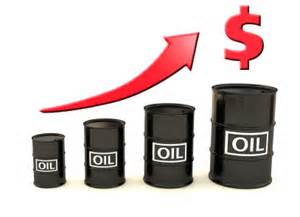 Prices of oil briefly reached $102 per barrel Wednesday, the highest the price has been in more than 12 months, as Mohammed Morsi, the embattled President of Egypt vowed to stay in power only hours before a military deadline expires calling for his resignation.
Prices of oil briefly reached $102 per barrel Wednesday, the highest the price has been in more than 12 months, as Mohammed Morsi, the embattled President of Egypt vowed to stay in power only hours before a military deadline expires calling for his resignation.
Crude oil prices were up by $1.90 to over $101.50 per barrel after topping the $102 mark briefly Wednesday.
The crisis taking place in Egypt is not the only thing causing uncertainty in world markets. However, it has raised fears that prices of oil could spike if a supply disruption takes place due to the crisis because of the Suez Canal suffering a bottleneck or blockage.
Another analyst warned that the market would suffer a big impact if oil were to go over the $105 per barrel price. The additional levels start acting like a tax on the consumer and cut into their spending on services and goods. Consumer spending in the U.S. accounts for close to 70% of all economic activity.
With the possibility of increased oil prices and an interest rate increase at the same time would further add to a drag on the growth of the economy.
Others say a move above $100 per barrel would be unwelcome but feasible for the U.S. consumer to handle but only if it remained there for a short period of time.
